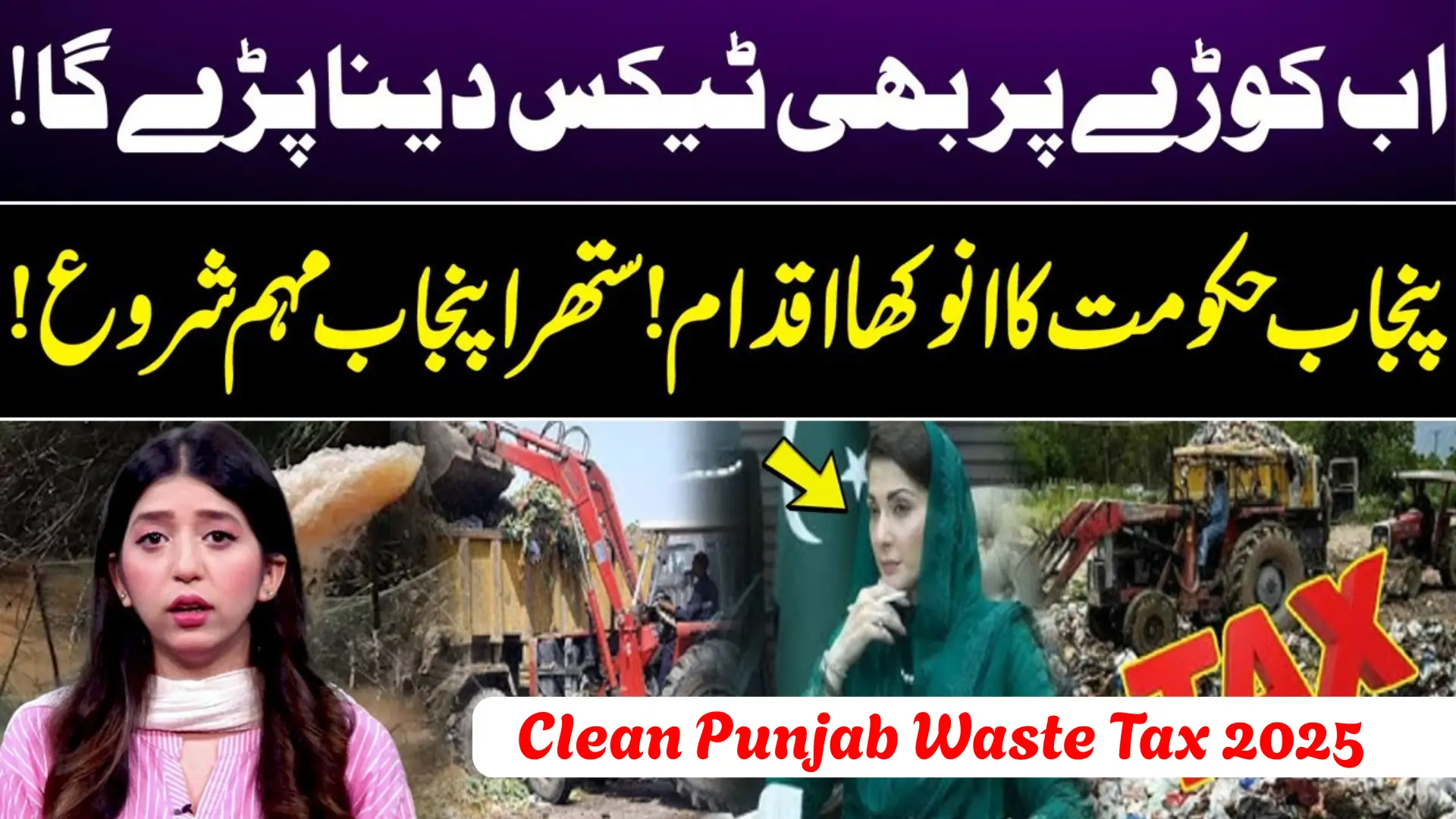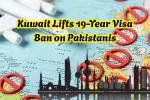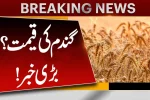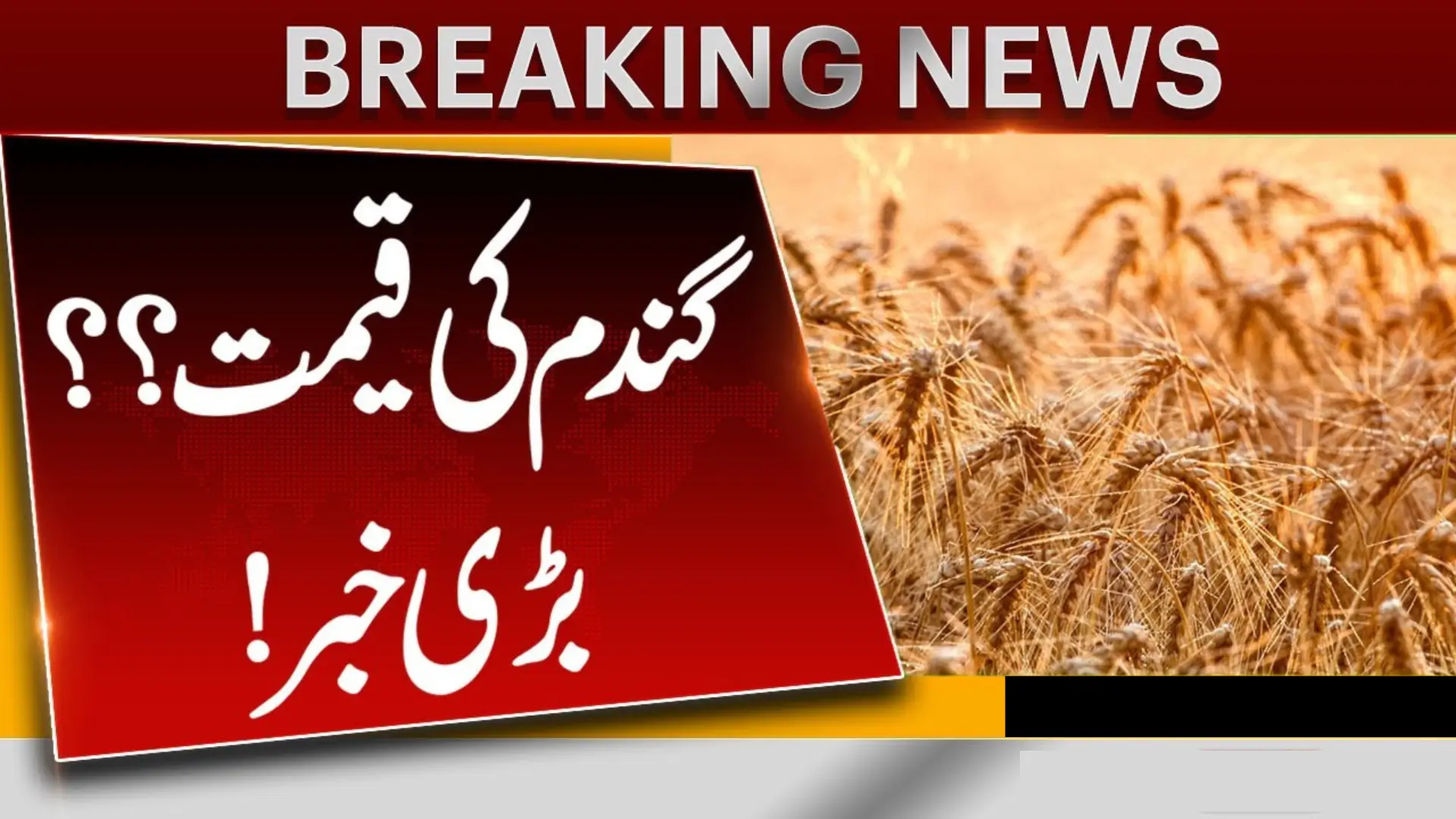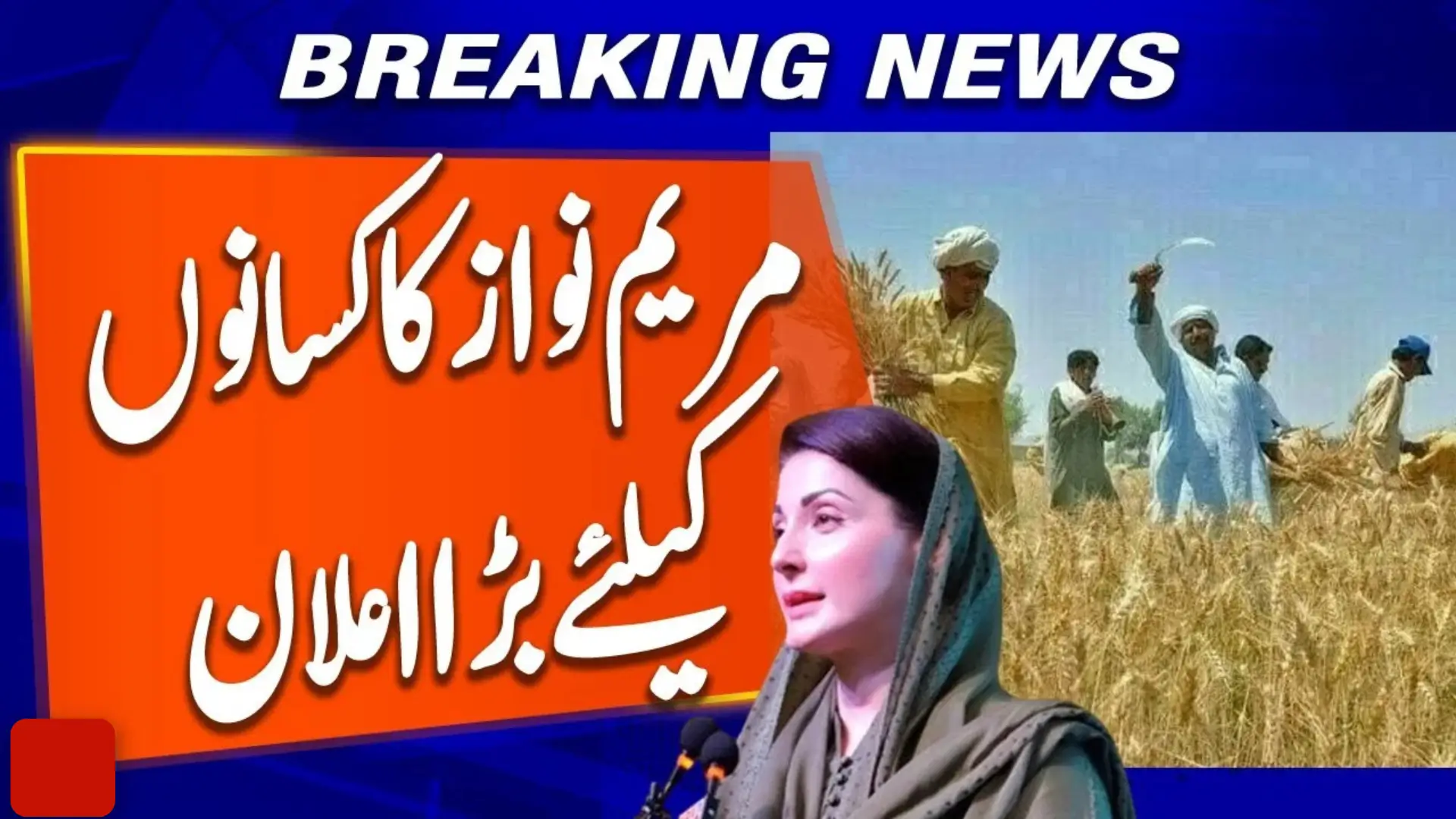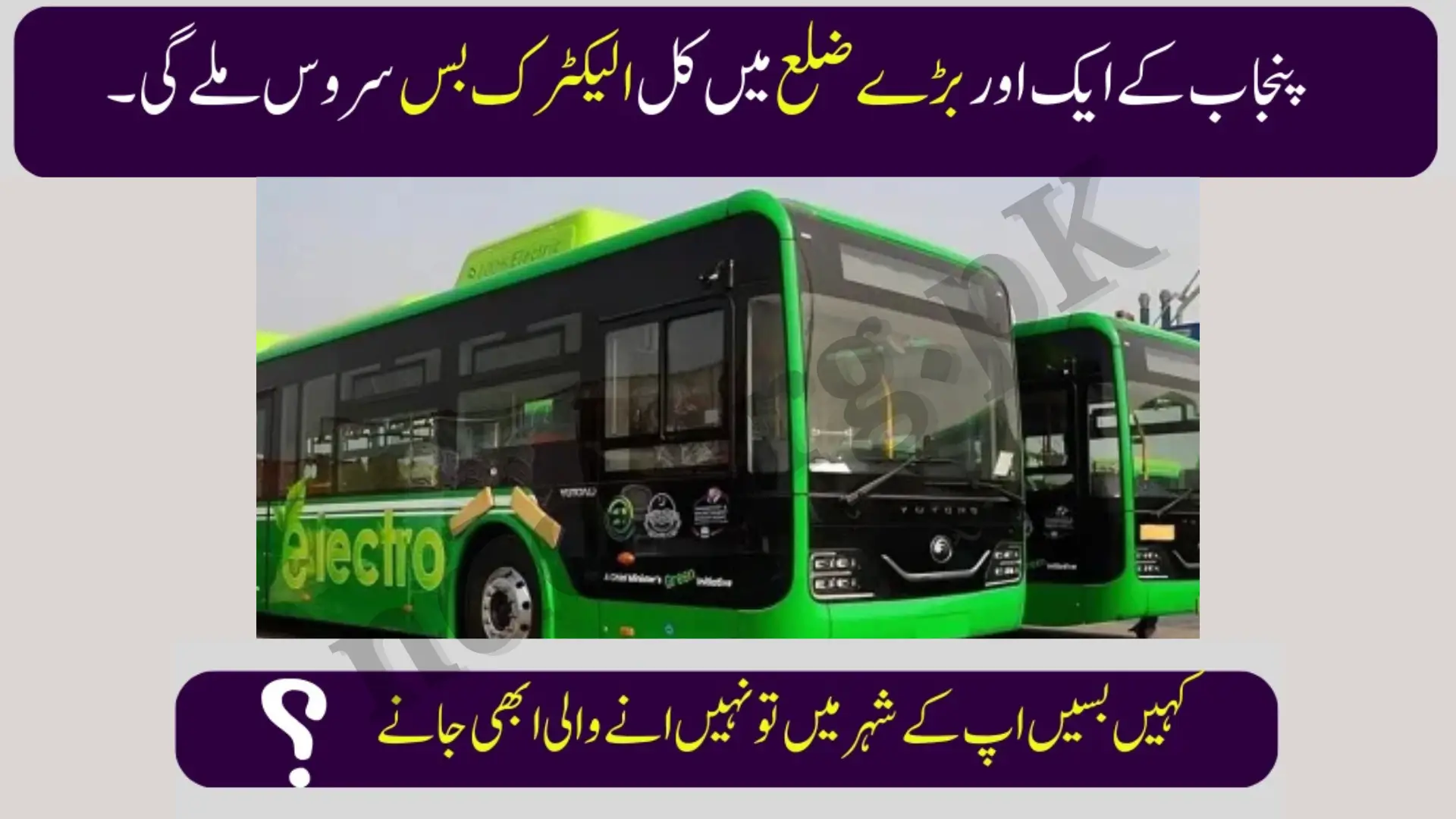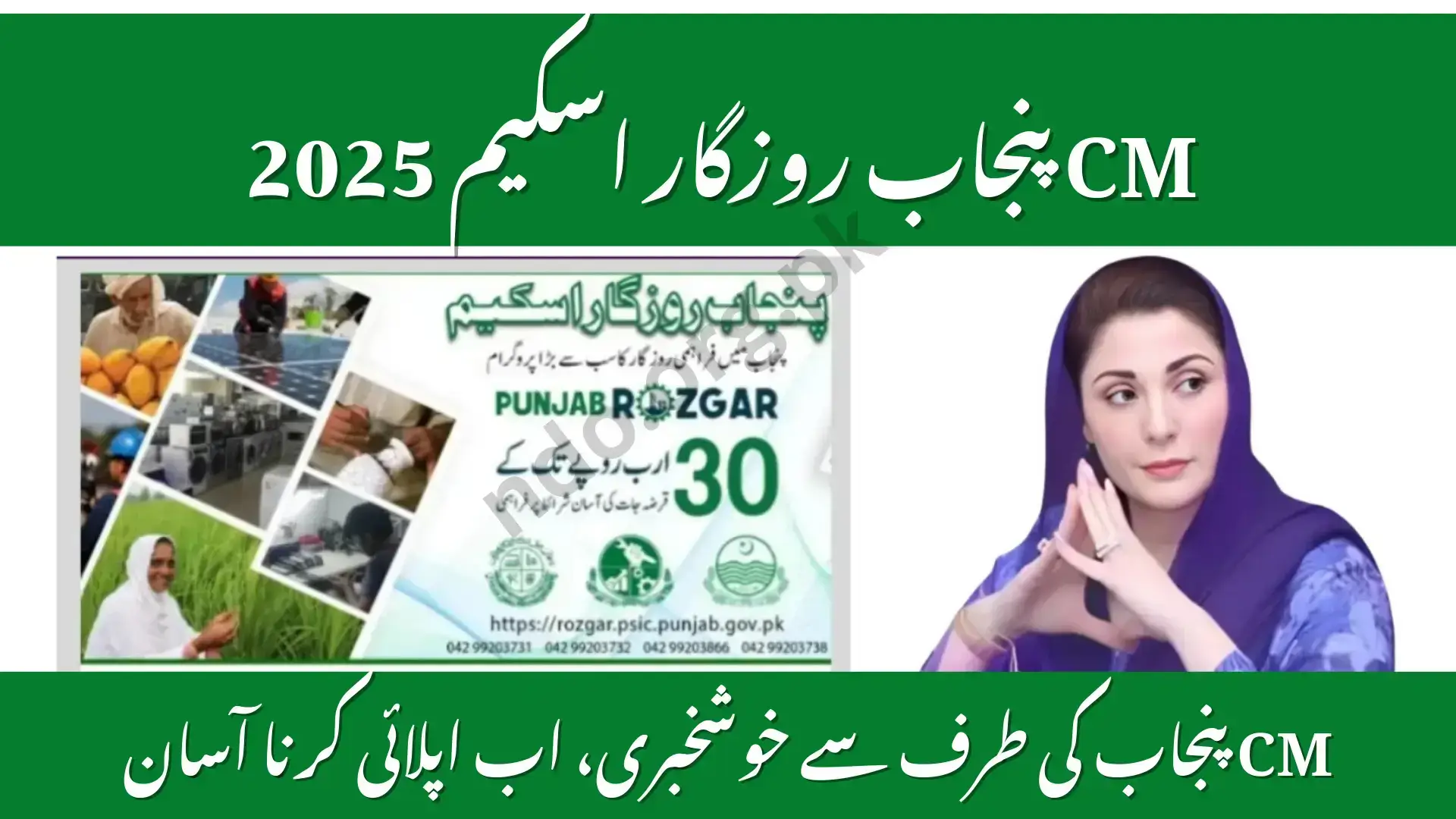Clean Punjab Waste Tax 2025 – Full Guide, Rates, and Steps Explained. The Punjab Government has introduced a major environmental initiative called the Clean Punjab Waste Tax 2025. This new policy has been approved under the Clean Punjab Campaign, aiming to create a sustainable waste management system across both urban and rural areas.
The Lahore Waste Management Company (LWMC) has already started distributing and collecting sanitation bills from homes and shops in key cities. This marks the beginning of a province-wide rollout that will soon cover every district of Punjab.
The goal is not only to collect funds but to build a modern and self-sustaining sanitation network that ensures clean streets, proper garbage disposal, and a pollution-free environment.
What Is the Clean Punjab Waste Tax?
The Clean Punjab Waste Tax is a monthly sanitation fee charged for garbage collection, disposal, and recycling services. It applies to residential, commercial, and industrial properties.
This charge is not a property tax but a service-based fee dedicated entirely to waste management improvement. The revenue collected will help upgrade garbage collection systems, expand recycling units, and improve street-cleaning operations.
- Fixed monthly fee based on property size and type.
- Managed by LWMC and other local waste management bodies.
- Applicable to both cities and villages.
- Separate rates for homes, shops, and businesses.
By contributing to this fee, citizens are playing their part in keeping Punjab cleaner and healthier.
Why Has the Punjab Government Introduced This Tax?
For years, Punjab’s cities and villages have faced challenges in managing waste efficiently. Uncollected garbage piles, illegal dumping, and burning of waste created pollution and health risks.
The government identified that the existing waste system lacked steady funding, making it hard to maintain regular services. Therefore, the Clean Punjab Waste Tax was launched to ensure financial stability and accountability in the waste management sector.
Key Objectives:
- Ensure timely garbage collection and disposal.
- Prevent illegal dumping and open burning.
- Encourage citizens to contribute toward sanitation.
- Build long-term funding for municipal cleanliness programs.
This model takes inspiration from international waste management systems, creating a self-reliant structure that doesn’t rely solely on government grants.
Clean Punjab Waste Tax Rates for 2025
The Punjab Government has set different rates for houses, shops, and businesses, depending on property size and location. Rural areas will pay lower charges than urban centers to maintain fairness.
Clean Punjab Waste Tax 2025 Rate Chart
| Category | Area | Property Size / Type | Monthly Charge (PKR) |
|---|---|---|---|
| House | City | 5 Marla | 300 |
| House | Village | 5 Marla | 200 |
| House | City | 5–10 Marla | 500 |
| House | City | 10 Marla – 1 Kanal | 1,000 |
| House | City | Above 1 Kanal | 2,000–5,000 |
| House | Village | Above 10 Marla | 200–400 |
| Shop (Small) | City | — | 500 |
| Shop (Small) | Village | — | 300 |
| Shop (Medium) | City | — | 1,000 |
| Shop (Medium) | Village | — | 700 |
| Business Center | City | — | 3,000 |
| Business Center | Village | — | 2,000 |
These rates may be revised as the Clean Punjab Initiative expands to more cities and villages.
How Billing and Collection Works
The LWMC (Lahore Waste Management Company) has started billing operations in major cities and commercial zones.
Step-by-Step Billing System:
- LWMC field teams distribute bills at homes and shops.
- Residents can pay through cash collection or bank deposit.
- Digital payment options will soon be available via mobile apps and portals.
- Each payment is recorded for transparency and tracking.
This digital transformation ensures zero corruption and smooth recordkeeping while making payments convenient for citizens.
Services Covered Under the Tax
The amount collected from this tax will directly fund public sanitation services and improve waste management infrastructure
- Door-to-door garbage collection
- Regular street sweeping and drain cleaning
- Transportation and disposal of solid waste
- Recycling and composting programs
The Punjab Government plans to upgrade equipment and introduce smart waste bins and eco-recycling facilities in the future.
Step-by-Step Guide for Homeowners
If you own a home in Punjab, you’ll receive a monthly Clean Punjab Waste Tax bill. Follow these steps to handle it correctly:
- Check your bill details – name, CNIC, property address.
- Pay the amount within the due date to avoid late fees.
- Keep the receipt or transaction proof safe.
- If you didn’t receive a bill, contact the nearest LWMC office with your CNIC and address for reissuance.
Timely payment ensures continuous garbage collection and clean surroundings for your neighborhood.
Step-by-Step Guide for Businesses and Shops
All shopkeepers and business owners must also pay the monthly sanitation charge. The amount depends on business type and property size.
- Confirm your business category (small, medium, large).
- Pay only to authorized LWMC or municipal staff.
- Keep payment records for audit and tax purposes.
- Inquire about rebates or discounts for recycling and eco-friendly practices.
Businesses adopting green waste management methods may receive concessions in the next phases of the program.
Relief and Exemptions
To ensure fairness, the Punjab Government plans to offer relief for low-income citizens and small rural households.
Expected Concessions:
- Reduced rates for BISP-registered and low-income families.
- Discounts for small village homes and shops.
- Rebates for businesses adopting sustainable waste solutions.
These measures make the program inclusive and citizen-friendly, supporting those who need financial assistance.
Benefits of the Clean Punjab Waste Tax
The Clean Punjab Waste Tax is more than just a revenue system — it’s a public health and environmental reform.
Major Benefits:
- Cleaner streets and neighborhoods.
- Reduced pollution and disease risks.
- Stable funding for LWMC and local waste bodies.
- Job creation in the sanitation sector.
- Long-term goal of a “Clean and Green Punjab.”
By paying this small monthly charge, citizens directly contribute to a better and cleaner future.
Addressing Public Concerns
Some citizens have raised concerns about the fairness and purpose of this new tax. However, the government clarified that:
- This is not a property tax, it’s a service charge.
- All collected funds will be used only for sanitation services.
- Rates are lower for rural residents.
- Digital tracking and audits will ensure transparency.
LWMC will also release quarterly reports showing how funds are utilized to maintain public trust.
Implementation Timeline
The rollout of the Clean Punjab Waste Tax 2025 will occur in three phases across Punjab.
| Phase | Coverage Area | Implementation Status |
|---|---|---|
| Phase 1 | Lahore & Major Cities | Started – Billing in progress |
| Phase 2 | District Headquarters | Scheduled after Phase 1 |
| Phase 3 | Rural Areas & Villages | To begin after district rollout |
Regular updates will be announced through official Punjab Government channels and local media.
FAQs
1. Is the Clean Punjab Waste Tax legally approved?
Yes. It has been approved by the provincial cabinet under the Clean Punjab Campaign.
2. Who collects the bill payments?
The LWMC and respective municipal waste companies are responsible for billing and collection.
3. Are rural residents charged less?
Yes, rural homes and shops have significantly lower rates than city properties.
4. What if I don’t get a bill?
Visit your nearest LWMC office with your CNIC and property details to request a duplicate.
5. Will there be online payment options?
Yes. Digital payments via mobile apps and e-portals will be introduced soon.
Conclusion
The Clean Punjab Waste Tax 2025 is a progressive move by the Punjab Government to ensure that every citizen contributes to a cleaner, greener, and healthier province.
With transparent billing, fair rates, and digital payment facilities, this initiative will strengthen Punjab’s sanitation system and improve living standards for millions.

